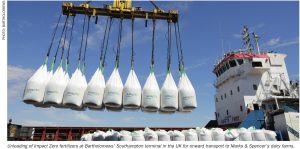
Crop nutrient product innovation
Fertiberia, OCP Nutricrops, GoudenKorrel and Omnia provide an update on the latest offerings in their product portfolios.

Fertiberia, OCP Nutricrops, GoudenKorrel and Omnia provide an update on the latest offerings in their product portfolios.
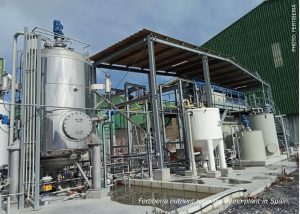
Fertiberia’s Cinta Cazador Ruiz outlines the aims of the B-FERST project and highlights its major successes.

Horisont Energi says that it has secured a non-binding offtake deal with “a European energy group” for ammonia sales from its Barents Blue clean ammonia plant at Markoppnes in northern Norway. Sales and purchase agreements are targeted for completion in 2026. Horisont is pressing ahead with the 1 million t/a project in spite of the withdrawal of project partner Fertiberia, and the exit of Polish company Orlen from a related CCS project. Front end engineering and design work has not yet been completed, but the project has been working on commercial agreements for the supply of gas, offtake of clean ammonia and storage of CO2 . Carbon capture is projected to be above 99%, and it is expected to be the most energy-efficient clean ammonia plant in the world. Barents Blue is supported by a $48 million grant as part of the EU IPCEI hydrogen program, Hy2Use. The project is targeting a final investment decision (FID) in 2026 and estimated production start in 2029/2030.

The last year has seen the first shipments of low-carbon ‘green’ fertilizers from companies such as Yara, Fertiberia, OCI and Sabic Agri-Nutrients. Partnerships with food manufacturers and retailers are helping to grow this emerging market and drive demand.

Yara to purchase renewable calcium ammonium nitrate (CAN) from Atome
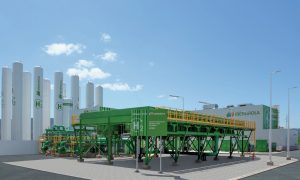
Fertiberia’s Puertollano green hydrogen plant was officially inaugurated by Spain’s King Felipe VI in May 2023. The 20MW capacity unit will produce up to 3,000 tonnes of renewable hydrogen annually.
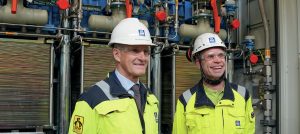
In a major milestone, Yara International has officially opened its renewable hydrogen plant at Herøya Industrial Park, Porsgrunn, Norway.

Biostimulants are emerging as mainstream products with major fertilizer producers – including Yara, Mosaic, Fertiberia and ICL – launching their own biostimulant lines and expanding production capabilities. Smaller innovative companies, meanwhile, such as Azotic and Fyteko, remain the mainstays of the sector and are continuing to being new products to market. Other players such as Den Nouden/GrowSolutions are targeting the expansion of organic fertilizers.

Paradeep Phosphates Limited (PPL) and Mangalore Chemicals & Fertilizers Limited (MCFL) have agreed to merge.
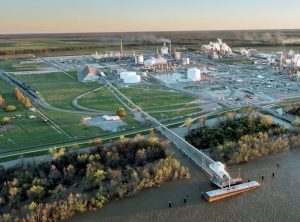
Mark Brouwer and Jo Eijkenboom of ureaknowhow.com examine the major shifts in global urea production. They also discuss the future of the urea industry and, in particular, how the sector is being affected by the increasing focus on low-carbon ammonia production.